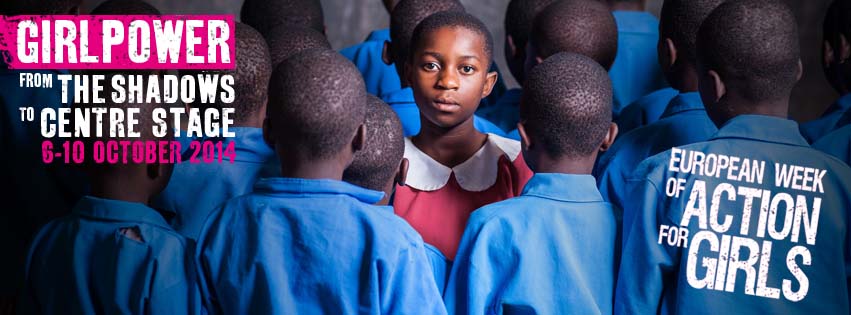 This year I celebrate twenty years working for DSW (Deutsche Stiftung Weltbevoelkerung). During this time, I have been fortunate to witness significant progress in advancing the cause of young women and girls. Their ability to choose their own futures is vital, not only for their own social and economic development, but also for the communities in which they live. They have the right to be their own agents of change but to achieve this we need to break down the barriers that prevent them from reaching their potential.
This year I celebrate twenty years working for DSW (Deutsche Stiftung Weltbevoelkerung). During this time, I have been fortunate to witness significant progress in advancing the cause of young women and girls. Their ability to choose their own futures is vital, not only for their own social and economic development, but also for the communities in which they live. They have the right to be their own agents of change but to achieve this we need to break down the barriers that prevent them from reaching their potential.
According to the latest UNFPA report, one of the major obstacles to economic growth and prosperity is the high number of unintended pregnancies among teenagers living in low- and middle-income countries. It is still shocking that 7.3 million girls under the age of 18 years living in these countries give birth each day. This means that for each day of the year, an estimated 20,000 babies are born to school-age girls. Of these births, about two million are to 15 year-old girls or younger, many of whom suffer grave long-term health and social consequences from pregnancy such as obstetric fistula. Although the maternal mortality rate has dropped by 45 per cent worldwide since 1990, an estimated 70,000 of adolescents die each year from complications during pregnancy and childbirth. This situation is not only intolerable for the girls themselves, but also widens the cycle of poverty as children born into poverty will find it difficult to break free, thus ensuring that the cycle continues.
 European Week of Action for Girls – what can be done to reverse this trend?
European Week of Action for Girls – what can be done to reverse this trend?
The causes behind adolescent pregnancy are complex. Although aspects have been addressed in various international activities, to date a coherent direction from the international community is lacking. This could be rectified by a unified and cohesive initiative adopted by the G7 governments, by ensuring the G8’s 2015 expiring Muskoka Initiative is continued and financially supported. The focus on increasing access to youth-friendly sexual and reproductive health and rights (SRHR) services needs to be prioritised and incorporated into the Post-2015 Agenda. Building on recommendations from the WHO, the continuum of care for reproductive, maternal, newborn and child health (RMNCH) should be fully taken into account regarding the development of an integrated service delivery for mothers and children from pre-pregnancy to delivery, including the immediate postnatal period, childhood and onwards.
It is vital that we work together towards securing universal access to SRHR for girls and young women. This is one the key asks of The Girl Declaration, which is global call to action to place girls at the centre of development cooperation.
European Week of Action for Girls – Girls’ Rights Gazette
These important commitments would contribute greatly to helping girls develop the tools and skills to build their own futures – enabling them to take control of their health and well-being, to finish school, to join the workforce, and to determine for themselves when and how many children they want. This is crucial not only for them but for their communities, and for future generations.
Renate Baehr
Executive Director
DSW (Deutsche Stiftung Weltbevoelkerung)
This article originally appeared in the European Week of Action for Girls 2014 Girls’ Rights Gazette, a newspaper published by Plan EU marking the week and celebrating girls’ rights. The Gazette features articles from senior UN, European Union and civil society representatives. Download a copy here and get reading!

